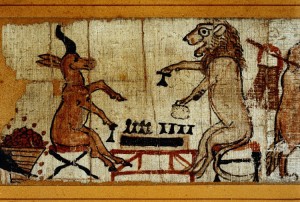New Tech City, a blog/podcast in the WNYC family is gearing up for a challenge week, February 2nd through the 9th, 2015.
Get more information at: http://www.wnyc.org/series/bored-and-brilliant/

New Tech City, a blog/podcast in the WNYC family is gearing up for a challenge week, February 2nd through the 9th, 2015.
Get more information at: http://www.wnyc.org/series/bored-and-brilliant/
I have been musing lately upon Umbra Mai Fu, the larghetto short aria which begins George Frideric Handel’s opera Serse.
Yes.
I actually do things like that.
Only Dr Bear.
It is a beautiful piece, although the opera is rather goofy, and was not particularly successful. It premiered on the 15th of April, 1738, in London, with the castrati Caffarelli (Gaetano Majorano) singing the title role. Today, it might be performed by a counter-tenor (Andreas Scholl’s performance is quite good); however, since there are only two dozen or so good counter-tenors out there, it is often performed by a mezzo-soprano.
 The twelfth and last night of Christmas is celebrated as epiphany, or as the Feast of the Magi in many countries, but in England, it retains one of the characteristics of the Roman festival Saturnalia, that of turning the social order on its head. Twelfth Night is often marked by amateur theatrics, as well as professional ones, which are “Topsy-Turvy;” traditional roles of master and servant, and of man and woman, are reversed.
The twelfth and last night of Christmas is celebrated as epiphany, or as the Feast of the Magi in many countries, but in England, it retains one of the characteristics of the Roman festival Saturnalia, that of turning the social order on its head. Twelfth Night is often marked by amateur theatrics, as well as professional ones, which are “Topsy-Turvy;” traditional roles of master and servant, and of man and woman, are reversed.
This is a beautiful song. It is a song of longing for home and peace.
It is a love song to a tree, written for a castrated man, sung by a woman pretending to be a man, who is a Persian king, although the words are in Italian, and the music is composed by a German composer, who lived in London.
Times and places fade away; gender roles and national identities will always be in flux, but beauty–beauty remains.

Never was a shade
of any plant
dearer and more lovely,
or more sweet.